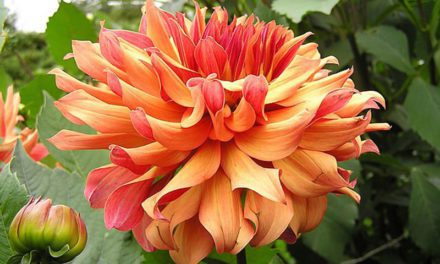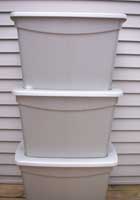 The world is too much with us; late and soon,
The world is too much with us; late and soon,
Getting and spending, we lay waste our powers;
Little we see in Nature that is ours;
We have given our hearts away, a sordid boon!
This Sea that bares her bosom to the moon;
The winds that will be howling at all hours,
And are up-gathered now like sleeping flowers;
For this, for everything, we are out of tune;
It moves us not. Great God! I’d rather be
A Pagan suckled in a creed outworn;
So might I, standing on this pleasant lea,
Have glimpses that would make me less forlorn;
Have sight of Proteus rising from the sea;
Or hear old Triton blow his wreathed horn.
– William Wordsworth
When I first studied this poem by Romantic era poet William Wordsworth, the words spoke to me, even as a very naive sophomore in college. Were the opposing political flavors and social upheaval of the late sixties similar to the late 17th and the early 18th century revolutions and social turmoil that Wordsworth experienced? The beauty of poetry is its timelessness. What was true in ancient and modern times is still true. We need nature, love, beauty, air, space, and water. We can’t eat money, live on material things, breathe political dogma, or drink religious doctrines. Tasks, worry, and fear don’t add a minute to our lives.
Enjoy the bright, hot days of summer, and its fruit and flowers. Enjoy the dew on the grass, the smell of Mother Earth. I especially like the cool mornings and evenings. Use sunscreen, wear a hat, gloves and long sleeves. Protect yourself from harmful rays and stinging, biting, leaf-devouring enemies. Luckily, friendly invertebrate and vertebrate wildlife also are abundant: beneficial insects, pollinators, earthworms, fish, lizards, and birds.
My garden is a mixed blessing with so many plants that I bought, rescued, or bartered, and a good many that were bestowed on my land by a higher power. Just like people some are well behaved, some are wild, and some are out of control. When I asked my Mother in law what I should do about landscaping the yard nearly 40 years ago she replied, “Honey, you don’t need much. I’ll bring you some grass and azaleas. You already have Palmettos, oak trees and yaupon holly.” So she did bring many garbage bags full of “granmamma’s grass” and baby azaleas with roots she had just weeded out of her flowerbeds in Orangeburg. We sprigged the grass and planted the azalea sticks under the oaks. Most of them took off, and before Matthew the azaleas were taller than I am and 7 feet wide around the trees. Of course I planted them too close to the trees, but they were so small I had no idea they would grow so large. Over the years I’ve been given lots of “free” plants. Only the toughest ones are with me today, but the ones I wish I’d never brought home were several large Ligustrum japonicum, a topiary of English ivy, and a clump Asiatic jasmine. I resisted the temptation to plant eleagnus, wisteria, or Japanese honeysuckle. Fortunately for my sanity I have ample Virginia creeper, cross vine, native coral honeysuckle, passion vine, beautyberry, yaupon, morning glory, lyreleaf sage, and spiderwort to keep the invaders at bay, or at least on their toes.
I am grateful and hopeful in a world of things that there are plants, animals, clean air and water for now. Garden on. Smile on. Thank a chlorophyll molecule for its magic. Triton, blow your horn.





